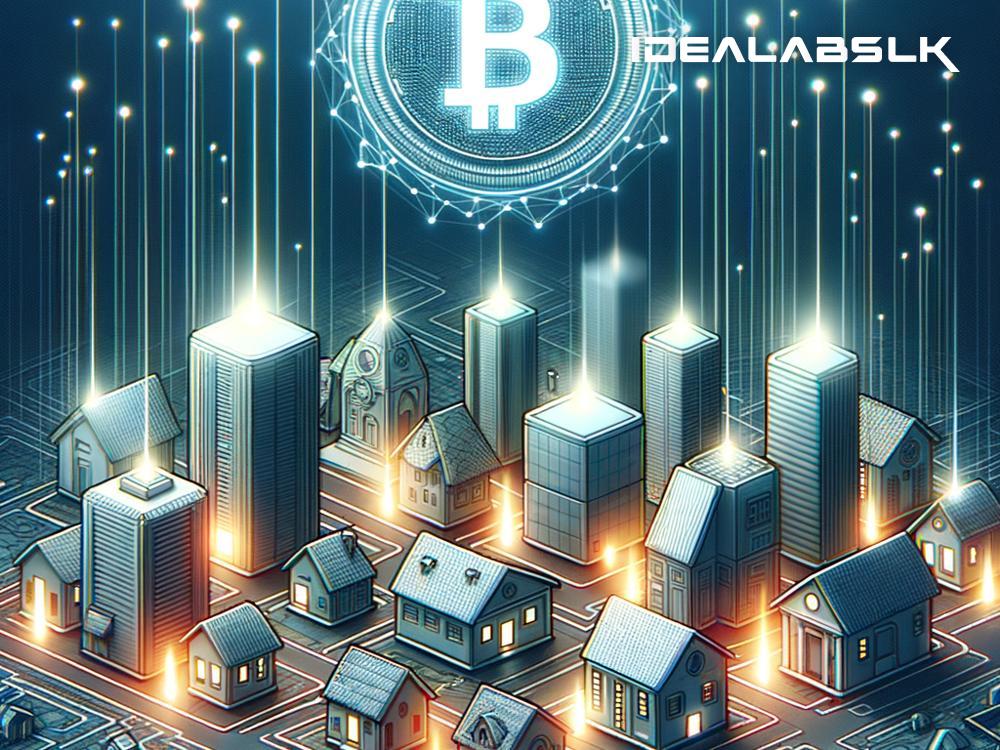The Simple Guide to Blockchain for Real Estate Transaction Authentication
In the world of buying and selling property, the process can often feel like navigating through a maze of paperwork and procedures. From ensuring the property you're interested in is legally available to confirming your payment has been securely received, there is a constant search for more efficient, secure, and transparent ways to handle transactions. This is where the concept of blockchain technology comes swooping in, aiming to revolutionize how real estate transactions are carried out.
What is Blockchain, Anyway?
Before we delve into how blockchain can transform real estate transactions, let's break down what it actually means. Imagine a digital ledger that is completely public and accessible by anyone on the network, but secure enough that once information is recorded, it cannot be tampered with or altered. That's blockchain, in a nutshell. It's the technology behind digital currencies like Bitcoin, but its potential extends far beyond the world of finance.
The Old Vs. The New
Traditionally, real estate transactions are filled with middlemen, from brokers to lawyers, and an endless exchange of documents. This not only makes the process slower but also adds additional costs. Each step in the traditional process serves as a point of verification to ensure legitimacy and security, but it's far from efficient.
Now, imagine a system where all these steps - the identity of the buyer and seller, the property details, the transaction history - are securely recorded on a digital platform that's transparent and immutable. That's exactly what blockchain offers. It streamlines the process, cutting out the middlemen and making the transaction quicker, cheaper, and just as secure, if not more.
Authentication with Blockchain
One of the biggest fears in real estate transactions is fraud. How do you ensure the person selling the property is the rightful owner? How do you know the property exists and is precisely as described? Blockchain comes into play here by providing a system where all property records are digitized and stored securely. Each property is given a unique digital identity, and any transaction related to the property is recorded on the blockchain.
This means that at any point, a buyer can verify the authenticity of the property, its ownership history, and even details about its physical and legal condition, all by accessing the blockchain. Sellers, on the other hand, can prove their ownership and the legitimacy of their offer without the need for piles of paperwork.
Transparency and Security
An added advantage of using blockchain for real estate transactions is the level of transparency and security it offers. Every transaction on the blockchain is encrypted but transparent to participants, making it nearly impossible for fraudulent activities to occur unnoticed. At the same time, the decentralization of data ensures that no single entity controls the information, further enhancing security.
The Ripple Effects
The adoption of blockchain in real estate doesn't just change how transactions are carried out; it also brings about broader economic implications. By making transactions faster and reducing costs, properties become more accessible. The transparency and security provided by blockchain can increase trust in real estate transactions, potentially leading to more investment and development. Furthermore, it opens the door for innovative financing methods, like fractional ownership or tokenization, making real estate investment accessible to a wider array of people.
The Path Forward
Despite its promising prospects, integrating blockchain into the real estate sector is not without its challenges. Regulatory hurdles, the need for widespread adoption, and the technical complexities of blockchain technology itself are significant barriers. However, with ongoing technological advancements and growing interest from the real estate industry, the journey towards blockchain-powered real estate transactions looks optimistic.
Conclusion
Blockchain technology offers a remarkable opportunity to transform the real estate industry by simplifying transactions, enhancing security, and increasing accessibility. While we are still at the early stages of this transformation, the potential benefits are undeniable. As we continue to navigate the complexities of integrating technology into age-old practices, the promise of a more efficient, transparent, and secure real estate transaction process is an exciting prospect for all involved.

